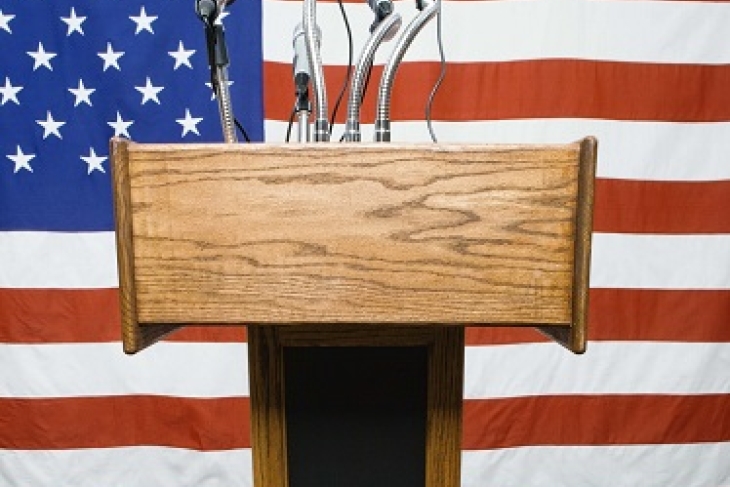The Seventy Four had a simple goal: to make the 2016 presidential election season one in which candidates could pause in their frenzy of backstabbing and baby kissing to talk about education. In a first-of-its-kind education forum, the site (with the help of sponsor and cohost the American Federation for Children) invited presidential candidates to discuss their vision for public schools. Republicans spoke in August, and Democrats were supposed to take their turn later this month.
But as Politico recently reported, the Democrats declined their invitations. It’s a missed opportunity. Worse, nobody seems to know why the candidates backed out.
Campbell Brown, the Seventy Four’s co-founder and would-be forum moderator, says it’s due to pressure from teachers’ unions (both the AFT and NEA have publically endorsed Hillary Clinton). “What happened here is very clear: The teachers’ unions have gotten to these candidates,” Brown told Politico. “All we asked is that these candidates explain their vision for public education in this country, and how we address the inequality that leaves so many poor children behind.” Representatives from the unions, unsurprisingly, won’t verify her claim. More troubling, the candidates won’t comment on their refusal to join in the debate. They’re remaining silent, which is exactly what presidential candidate shouldn’t be doing on an issue as important as education.
One explanation is that the candidates simply disagree with Campbell Brown’s views on education. Her advocacy against teacher tenure certainly hasn’t garnered favor among friends of organized labor. It’s also possible that her support for charter schools has left a bad taste in the Democratic candidates’ mouths. If so, I understand their desire for an impartial interlocutor. Yet the Seventy Four hails itself as a nonpartisan news site, not an education flak for the Right or Left. For this forum, the group partnered with the Des Moines Register, and Campbell Brown offered to abstain from moderator duties if the candidates preferred someone with fewer defined leanings. The stage seemed set for an inclusive, balanced discussion of our biggest education policy questions.
But for argument’s sake, let’s imagine that Brown just couldn’t stifle her too-hot views on education during the forum. So what? Why exactly should a difference of opinion keep our political leaders from participating in a discussion? Wouldn’t she be just the kind of person a Democratic candidate would hope to persuade? On the campaign trail, the candidates will be attempting to reach tens of millions of voters, each with a whole bunch of different (often conflicting) opinions. Are they going to refuse to speak with those dissenters, too?
Aside from a few questions, education was glaringly absent from the first two Republican presidential debates. If the Democratic versions follow suit, we’ll be missing our opportunity to hear what Hillary Clinton, Bernie Sanders, Martin O’Malley, Jim Webb, and Lincoln Chafee think about the Common Core, school governance, early education, teacher training, school choice, and more.
Some might argue that education isn’t—or shouldn’t be—the president’s purview. In fact, we heard six GOP candidates say just that at their Seventy Four event. Regardless of whether you agree, the important thing is that we know where these candidates stand. That’s the beauty of our system: Two people with differing views on an issue can meet, discuss, and listen.
When Politico asked Randi Weingarten, president of the American Federation of Teachers, to comment on the forum, she responded, “Campbell Brown is entitled to her opinion about public education, but the Democrats running for president—along with American voters—have a different vision.…The ‘test, punish, and privatize' strategy that Campbell backs hasn’t worked.”
Brown’s ideas don’t work? Great! Let’s hear more. Talk, debate, discuss, converse, discourse, proclaim. Do it on a stage in front of administrators, teachers, and other voters. The world wants to hear about the best path to effective education—especially from the group that might produce our next leader.
Unfortunately, if no one shows up, we’ll never know.
Jupiterimages/Creatas/Thinkstock

